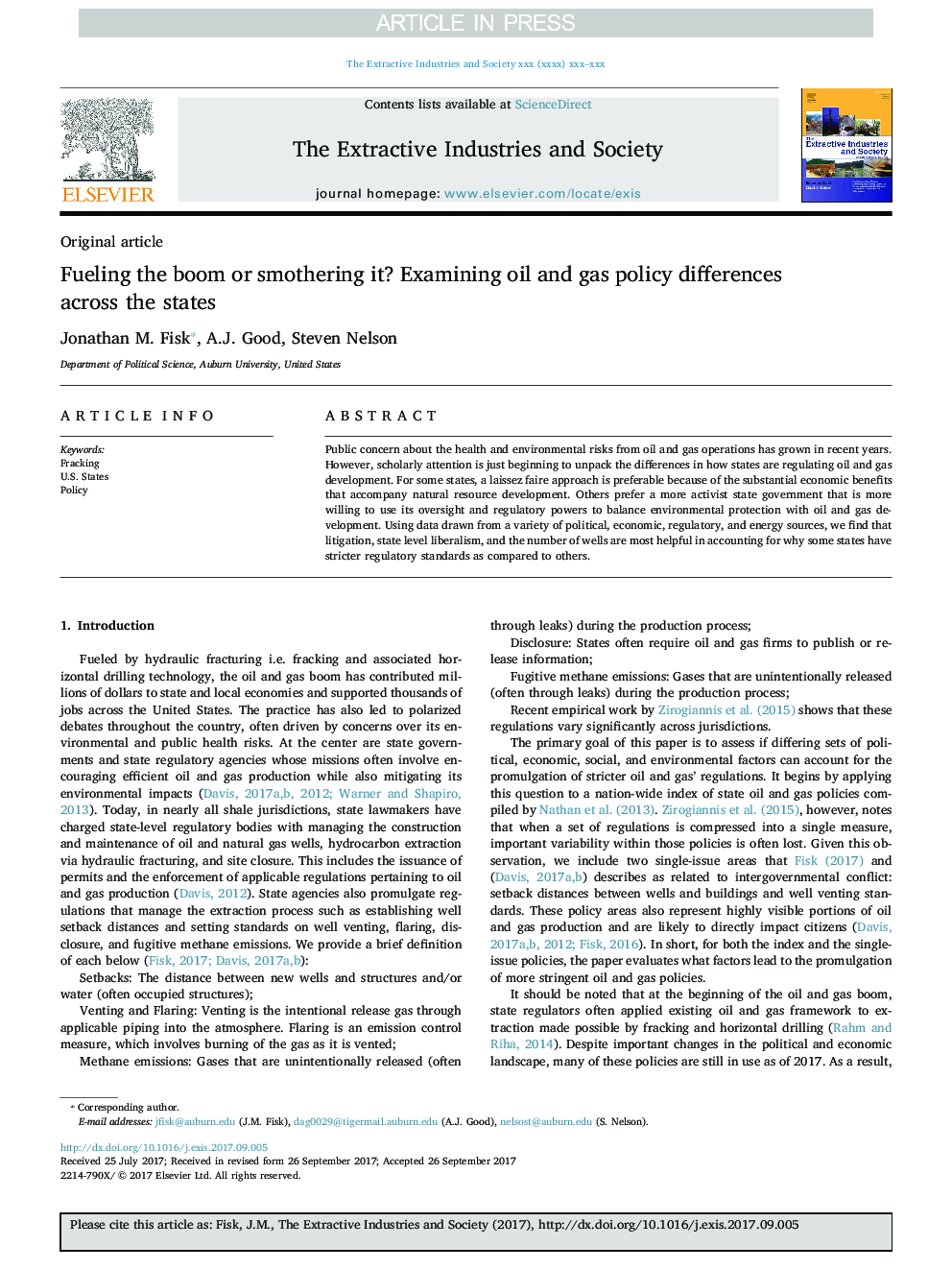| Article ID | Journal | Published Year | Pages | File Type |
|---|---|---|---|---|
| 7454389 | The Extractive Industries and Society | 2017 | 6 Pages |
Abstract
Public concern about the health and environmental risks from oil and gas operations has grown in recent years. However, scholarly attention is just beginning to unpack the differences in how states are regulating oil and gas development. For some states, a laissez faire approach is preferable because of the substantial economic benefits that accompany natural resource development. Others prefer a more activist state government that is more willing to use its oversight and regulatory powers to balance environmental protection with oil and gas development. Using data drawn from a variety of political, economic, regulatory, and energy sources, we find that litigation, state level liberalism, and the number of wells are most helpful in accounting for why some states have stricter regulatory standards as compared to others.
Keywords
Related Topics
Life Sciences
Environmental Science
Management, Monitoring, Policy and Law
Authors
Jonathan M. Fisk, A.J. Good, Steven Nelson,
